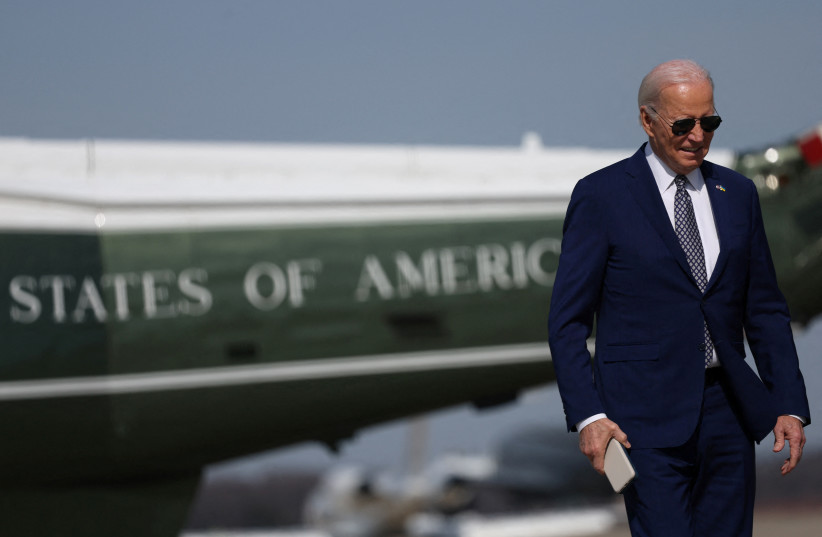US President Joe Biden’s decision to withdraw from the 2024 race for the White House could not have come at a worse moment for Israel concerning a hostage deal and Iran’s military threat against the Jewish state.
Some always lauded Biden’s strong support for Israel, particularly in the aftermath of October 7, and others felt he had not gone far enough to protect the Jewish state. Yet others charged that his actions were harmful.
The Israeli Right might even feel that it dodged a bullet, given its fear that Biden would have pressured Prime Minister Netanyahu into a Saudi deal that would have included a Palestinian state in Gaza and the West Bank.
It was not by accident that the Knesset voted against Palestinian statehood last week, in advance of a Washington trip that was scheduled to include a meeting between Netanyahu and Biden.
Irrespective of those arguments, Biden has done everything possible to secure a hostage deal.

Granted, some of those were Americans, but unlike other nations that sought to bring about private deals for their citizens, he looked at all the captives as if they were United States citizens.
Biden worked tirelessly on behalf of the hostages
Biden worked tirelessly on behalf of the hostages, both behind and in front of the camera, with some of his top officials, including CIA Director William Burns, leading talks.
He personally unveiled the latest proposal to retrieve the remaining 120 hostages in Gaza during a speech he delivered in the White House, a signal of the extent to which the power of his office was behind the deal.
The hostages were seized in the context of a larger proxy war between Iran and Israel. The IDF is now battling the Iranian proxy groups: Hamas in Gaza, Hezbollah in Lebanon, and the Houthis in Yemen.
Israelis have often attacked Biden for being soft on Iran, especially concerning the Islamic Republic’s pursuit of nuclear weapons.
He has, however, been strong with respect to the US commitment to militarily support Israel against attacks from Iran. He proved that in April, when his administration led a military coalition of five armies, two years in the making, whose air forces took to the skies to defend Israel from a direct Iranian drone and missile attack.
His steadfast stance on hostages and his unwavering support for Israel’s military actions against Iran have been so consistent that Israelis may not fully appreciate its importance until it’s gone.
Biden was able to wield an enormous amount of power in these areas, not only because he was the head of the United States, but also because he was a first-term president who could possibly remain in the White House for another four years.
His strong and nuanced knowledge of the Middle East, dating back more than five decades, and his relationship with its many leaders were also assets.
Now, he is suddenly a lame duck president with only six months left in office, and there are calls for him to step down immediately in favor of Vice President Kamala Harris.
This means that the issue of retrieving the hostages and forming a military coalition against Iran could almost immediately fall into her hands.
The leadership chaos will be most acute in the next month, given that the question of Harris replacing Biden on the ticket can only be officially decided by the Democratic National Convention on August 19-22.
This sudden potential shift in leadership comes as Biden and his administration are in the final phase of potentially closing a hostage deal.
It also comes as Iran has increased its proxy attacks against Israel, with drone attacks by the Houthis against targets within the sovereign borders of the Jewish state.
The chaos in Washington could sway Hamas to harden its stance in the hostage talks and give Iran the impression that now is the moment to increase military activity against Israel.
The problem is not just that Harris is untested on these issues, but more that Biden is now at his weakest point during a month when Israel most needs Washington to be in a strong leadership position.
That will create difficulties with closing the hostage deal and make Israel seem more vulnerable to Iran.
